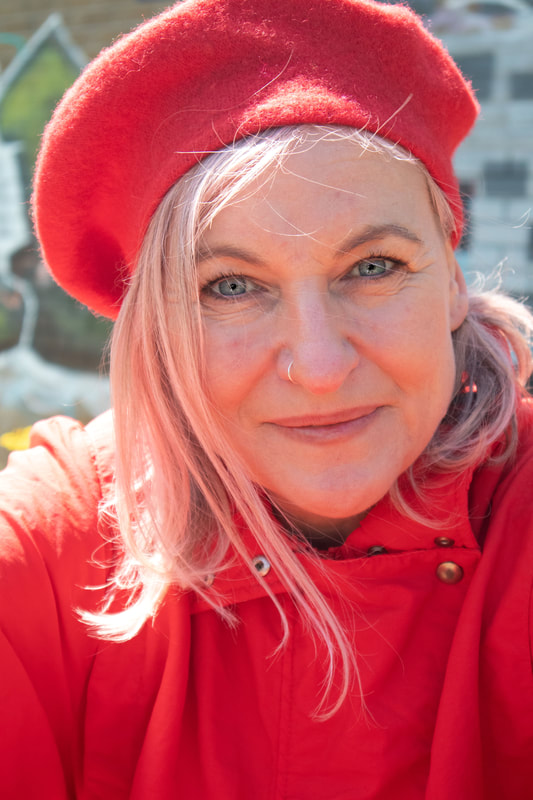|
by Robyn Hambrook Organising a Clown Congress comes with lots of tasks, problem solving and challenges. Over the first two days of the Congress I was kept busy; setting up systems, managing registration, receiving last minute emails and calls from lost arrivals, ensuring catering arrived and was set up and getting cake out for the afternoon break...so it took a while for me to relax and fully settle into the space. This happened by day three. Which also happened to be the last day of the Congress. But I didn’t mind and as I was really excited for our two contributors sessions that day; two contributors who are researching and applying clowning in different contexts to explore or to answer specific needs. Playing with adaptations and applications of clowning is the juice of the Congress for me; a chance to experience how expansive our art form is, mutable and evolving, able to meet the needs of our political, cultural and social shifts. After arrivals, landing with cups of tea we gathered at 10am in the theatre space, pulling our chairs into a big circle. Our first session was presented by psychiatrist and psychotherapist, Dr Sally Ruth Davies. Sally’s presentation was about her project called Queer Family Cabaret. She gave us some context; while taking a break from work in 2017 Sally discovered clowning and began taking loads of workshops with countless teachers. During the Pandemic her family played with clown to amuse themselves and to connect with others. And then after lockdown the family felt emboldened to perform at festivals. With her child, Sinan, Sally created a Joey/August routine, using clowning to play with the parent child dynamic. At this time gender was becoming an increasingly fluid concept at home. Sinan, didn’t identify as a boy and as the clown does not need to be so obviously gendered, the clown became a very natural and useful container for a fluid identity for them. Sally was discovering just how much clowning was helping to their family, from power dynamics to gender and identity. Families are one of the first places children explore their identity and it is vital that this journey is a positive and collective one. But there are very few resources for young people and families going through gender questioning and exploration. In schools gender is rigorously policed, so with no where to look for support, this can often leave them isolated. Sally highlighted some of the important elements of clowning for them through this journey;
In 2022 Sinan entered an Alternative Miss World competition at Wilderness Festival in 2022 and won!! Sally decided to create the Queer Family Cabaret project as a way for families to gently and organically explore and celebrate queerness together. Their workshops include simple games, costume and children dressing up their parents. She shared some of the exercises that happen in these workshops with the Clown Congress. We took a partner and quickly had to create a shape/tableau of something beginning with different letters of the alphabet. We then created larger groups and were invited to create tableaus of nightmare or boring family scenarios. Our group created a family on a shopping trip to Lidl. We all say who we are and what we are doing; I’m the mother trying to do the shopping while keeping the family together. There was a demanding five year old, the teenager who worked there who was mortified her family were there, a doting father proud of his child and another teenager skulking in the liquor aisle. Sally then invited us to transform these moving tableaus with clown solutions. This meant we could play the opposite of our roles or behave in absurd, unexpected ways. Groups shared their pieces; transforming family dynamics with hilarious outcomes from home births to killing grandma. Sally rounded up the session likening the transformation of our worst imagined family scenario into fabulous ones using clown logic to psychomagic. The term was created by Chilean born film-maker Jodorwosky, a practice of using the imagination, creativity and symbolism for therapeutic and self -mancipatory means. The session finished with a buzz in the room; it’s always so affirming to feel what laughter, irreverence and play can do to our nervous systems and mood. Our next session was with Olly Crick. Olly is a writer, academic and facilitator, who teaches mask, clown and Commedia Dell’Arte at drama schools, including Fooltime, Circomedia’s precursor. Passionate about Commedia Dell’Arte, it’s the focus of his PhD and several books he’s written. Olly also ran ‘The Fabulous Old Spot Theatre Company’, taking the art form to the unsuspecting village halls of Gloucestershire. Olly began by introducing us to his own research which he calls 'The Stations of the Fool’. This work explores the different positions the actor can take in relation to the audience and the play; as the self; as a clown; as an actor in a role playing to an audience; and then the actor playing their role within the confines of the dramatic situation. Moments of beauty and chaos ensued as we tried to play each of these roles, with our own wild interpretations and each layer becoming more and more complex. It was also the first time in the Congress we had taken a role as an audience, sitting down to watch people get up and demonstrate each position. It was a great opportunity to see a self, a clown and character version of Helen of Troy, with strange clown adaptations. I absolutely loved playing with Olly’s typology and his academic approach to this research. I found it useful to my practice thinking about who I am when I am performing, who the audience is and what is happening. The difference between ourselves, this idea of ‘our clown persona’ and then a ‘clown character’ can be confusing. I’ve noticed this when working out in the street; when does the actor take over to talk about practical real world things and when is my clown in play? They are both different and have different aims and intelligence. The session proved so complex that Olly hadn’t completed everything he had wanted to share. In the Open Space session after lunch he continued his workshop with a smaller group, now exploring Clowning and Social Class. Olly explained how all the Commedia Dell’Arte characters had fixed social positions and attitudes to other classes. Using this as a framework, he helped us create a short piece to demonstrate his thinking and the different positioning points of view. We each chose a character, with a specific class status, and then commented on the issue of Rosebank’s New Oil fields from the point of view of that class. We had the a politician, a head teacher, a middle-class liberal, a delivery driver and someone who worked on the rigs. Through introducing ourselves we were able to express our class through our opinion, and through our body positions we could express status. It was an enjoyable fast creation process, which led us to create a short skit to share with the Congress. From this you could go onto develop a full piece or have a conversation about the role of social class in politics. When we showed the piece we also integrated Olly’s ‘stations of the fool’s; arriving on stage as ourselves, then becoming our character and finally coming back to ourselves at the end. I think this created lots of complex layers which might be difficult for the audience to read. And also leaves the us with the questions: When does the play begin? How does the audience know? How do we prepare the audience to be an audience? More juicy interrogations that could create Clown Congress spin offs, perhaps? The last day was coming to an end. In our final reflection session with Holly Stoppit, she asked us to ask ourselves; what we enjoyed and therefore what needs were being met; and what we didn’t enjoy, so what needs weren’t being met. I loved these questions; an opportunity to deeply interrogate my experience over the days. We concluded with a big group brain storm about the Clown Congress as a whole; again asking what we enjoyed, didn’t enjoy and wanted in the future. This was all read back to the group in a popcorn-style poem. The influence of our poet-in-residence had definitely taken hold over the three days. You can read more about our collective reflections here. This brought us to the end. We packed up, hugged, swapped contacts, hugged some more and slowly drifted off into the early evening, with full hearts and new friends, looking forward to news of the next Clown Congress and opportunity to connect again. Links
Comments are closed.
|
AuthorCreative research into the meeting point of clowning and activism Archives
May 2024
Categories |
ABOUT ROBYN
Robyn is a Bristol-based director, teacher and performer. With over 20 years experience she is a passionate practitioner of clowning, physical theatre, circus and street arts. She has a MA in Circus Directing, a Diploma of Physical Theatre Practice and trained with a long line of inspiring teachers including Holly Stoppit, Peta Lily, Giovanni Fusetti, Bim Mason, Jon Davison, Zuma Puma, Lucy Hopkins and John Wright.
Over the past five years she has been exploring the meeting point of clowning and a deep desire to address the injustices in the world. This specialism has developed through her Masters Research ‘Small Circus Acts of Resistance’, on the streets and in protests with the Bristol Rebel Clowns and in research residencies with The Trickster Laboratory. Robyn’s Activist Clown research has led to collaborations with Jay Jordan (Laboratory of Insurrectionary Imagination, France), Clown Me In (Beirut), LM Bogad (US), Hilary Ramsden (Greece) and international Tricksters; ‘The Yes Men’ (US). During the pandemic in 2020, Robyn set up The Online Clown Academy with Holly Stoppit and developed a series of Zoom Clown Courses. Robyn’s research, started during her Masters, has been exploring the meeting point of clowning and activism, online, in the real world and with international collaborators. With this drive to explore political edges of her work she has also dived back into the world of the Bouffon; training with Jaime Mears, Bim Mason, Nathaniel Justiniano, Eric Davis, Tim Licata, Al Seed and the grand master Bouffon-himself; Philippe Gaulier. Keen to explore the intersection of clowning and politics, Robyn is driven to create collaborative, research spaces, testing and pushing the limits of the artform to create new knowledge and methodologies for her industry and strengthen partnerships for future work. Some of her most recent collaborations and teaching projects have included the Nomadic Rebel Clown Academy (5-day Activist Clown Training), The Laboratory of the Un-beautiful (Feminist Grotesque Bouffon Training for Womxn Theatre Makers) and the Clown Congress (annual gathering of clowns, activists & academics collectively exploring what it means to be a clown in this current era) |
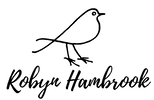
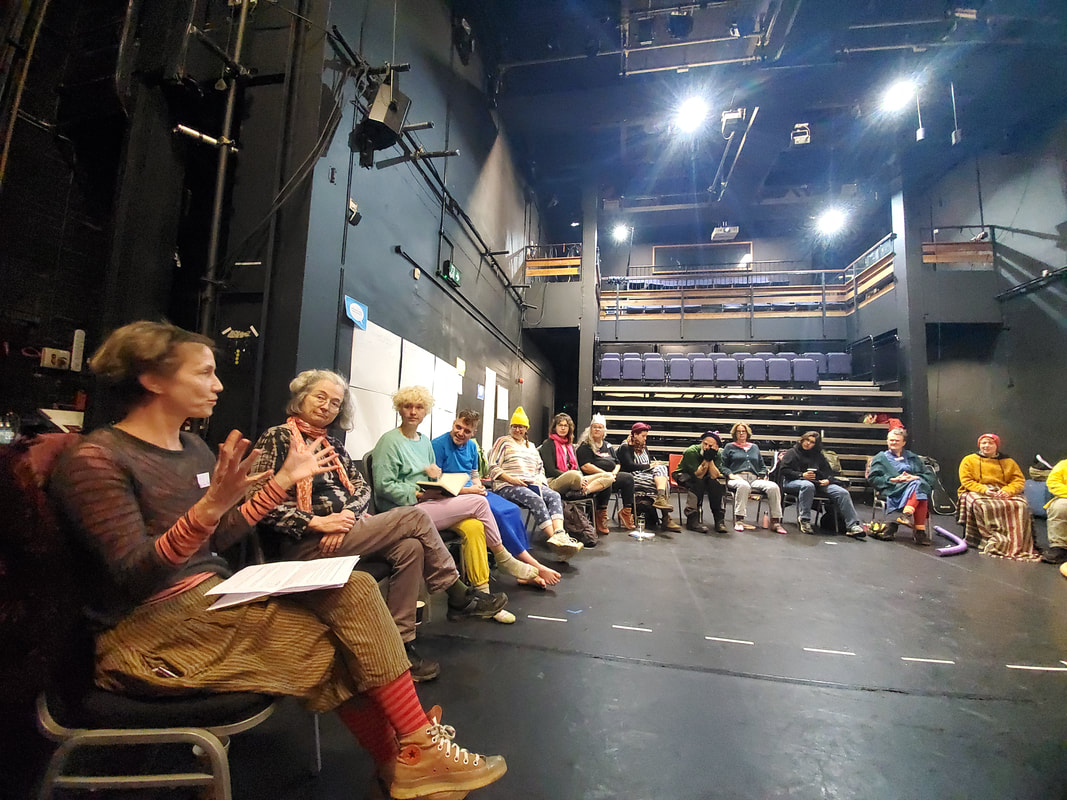
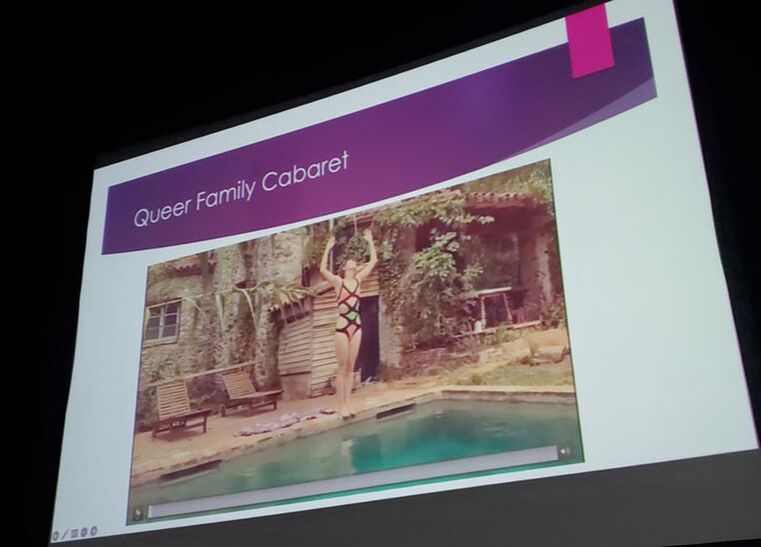
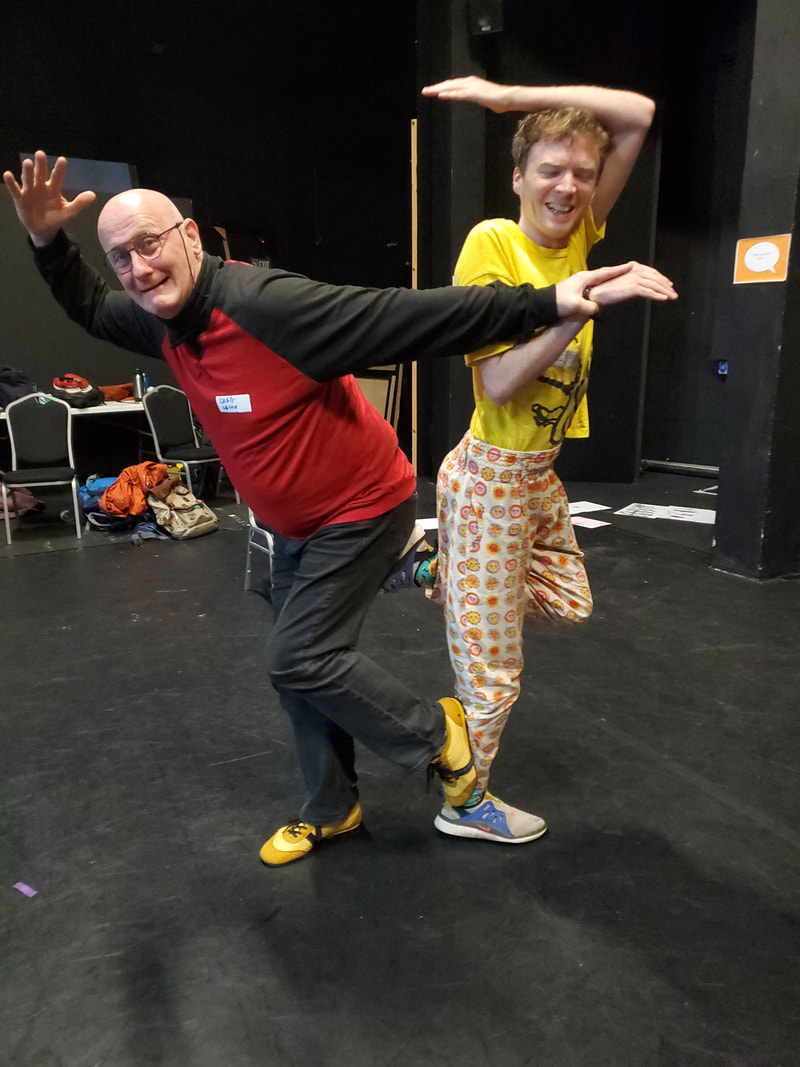
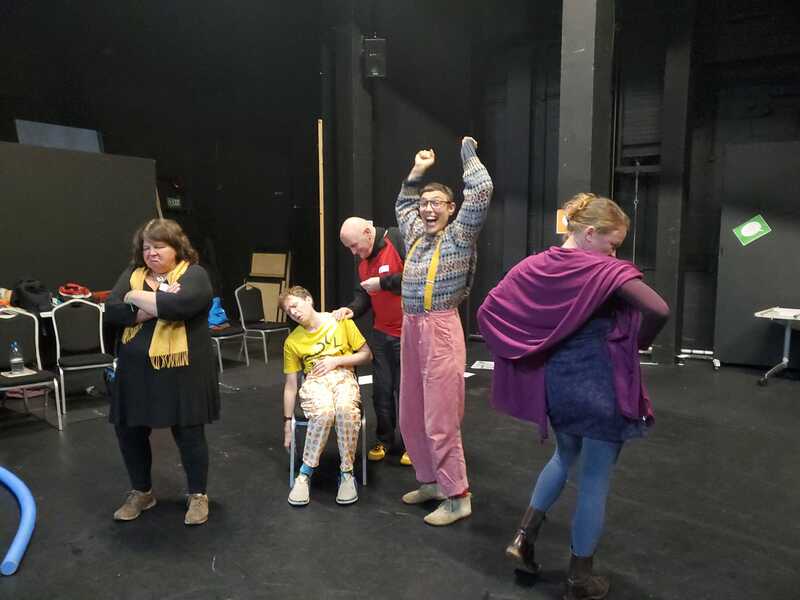
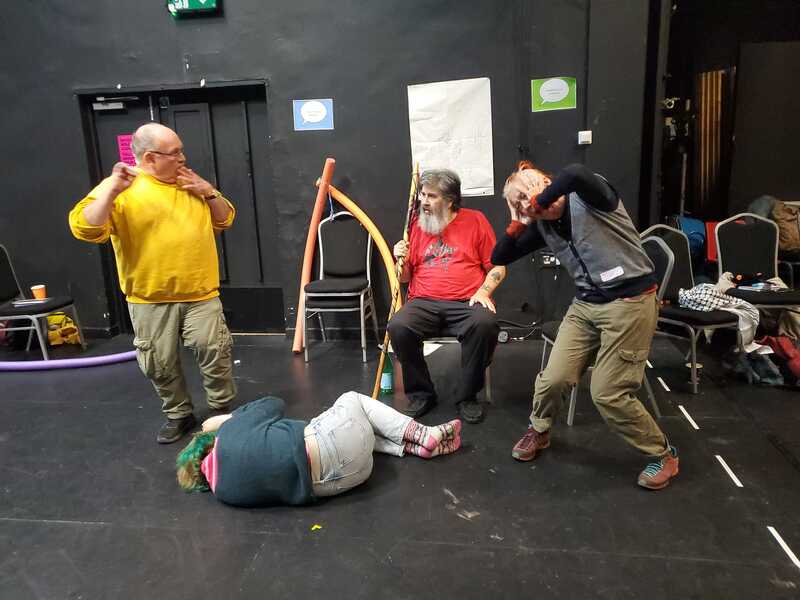
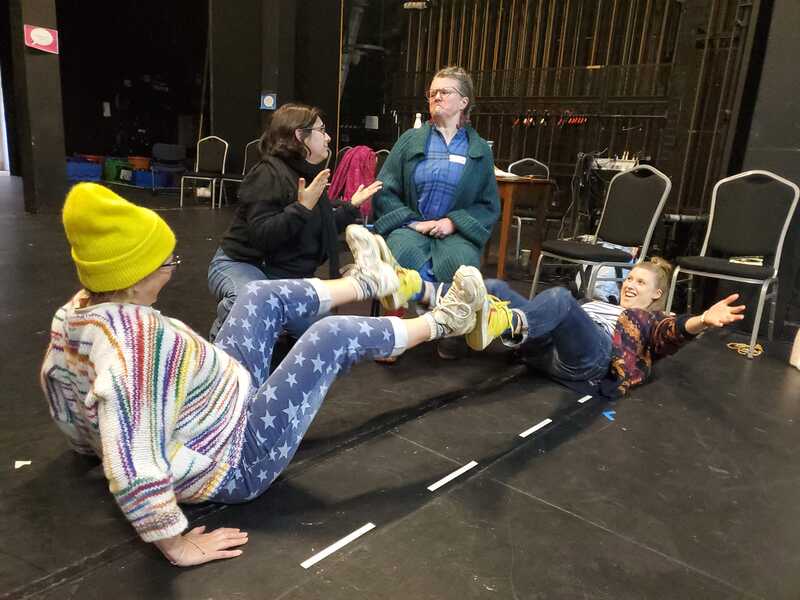
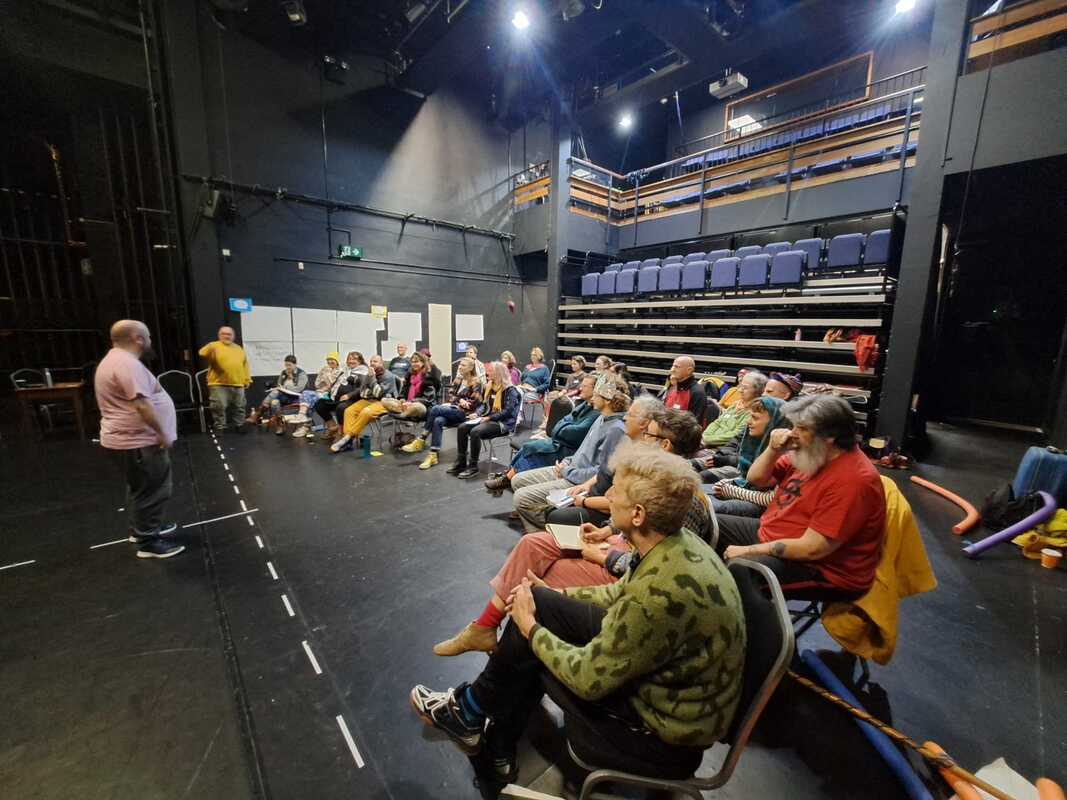
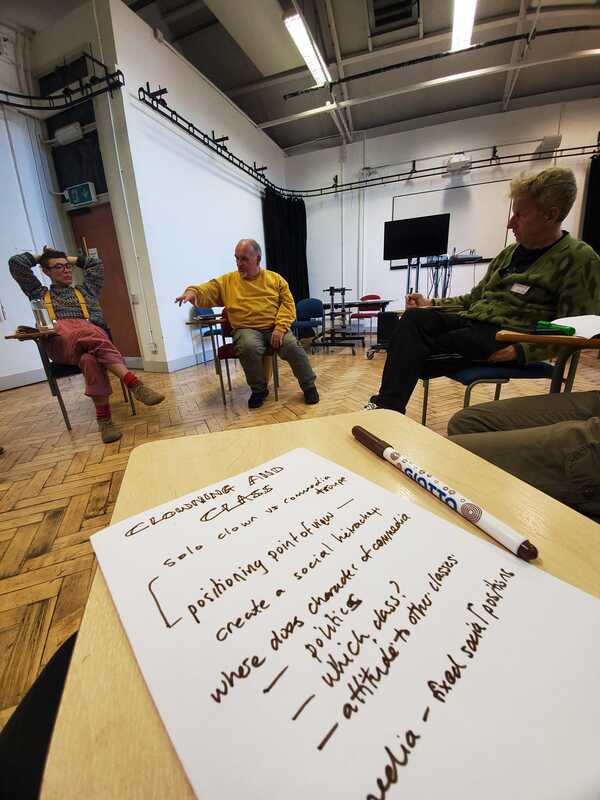
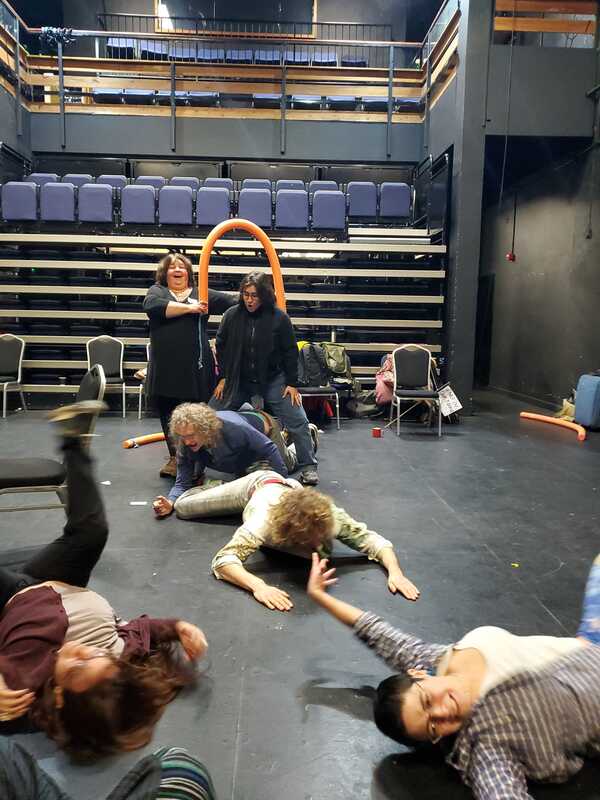
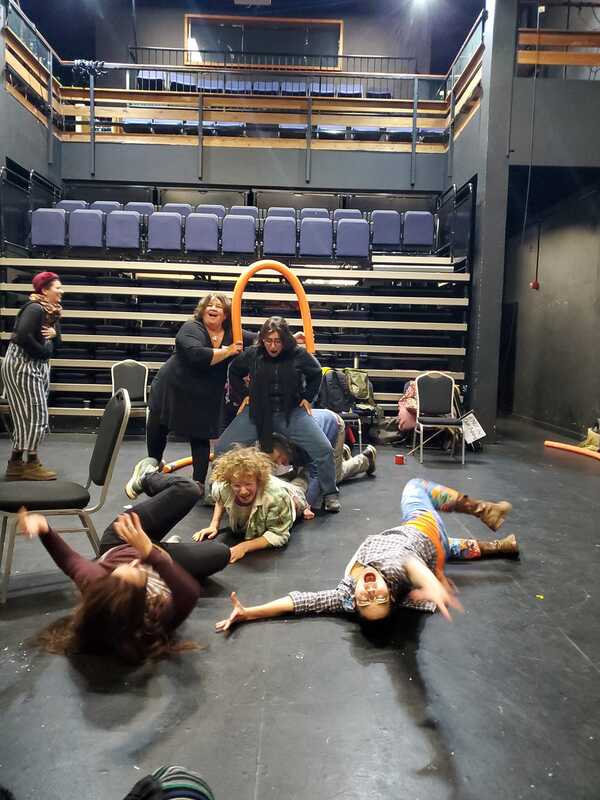
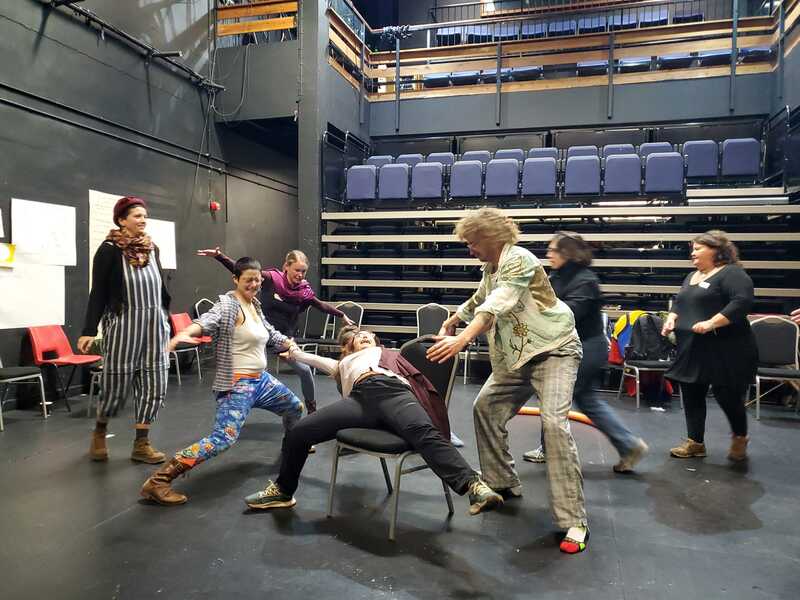
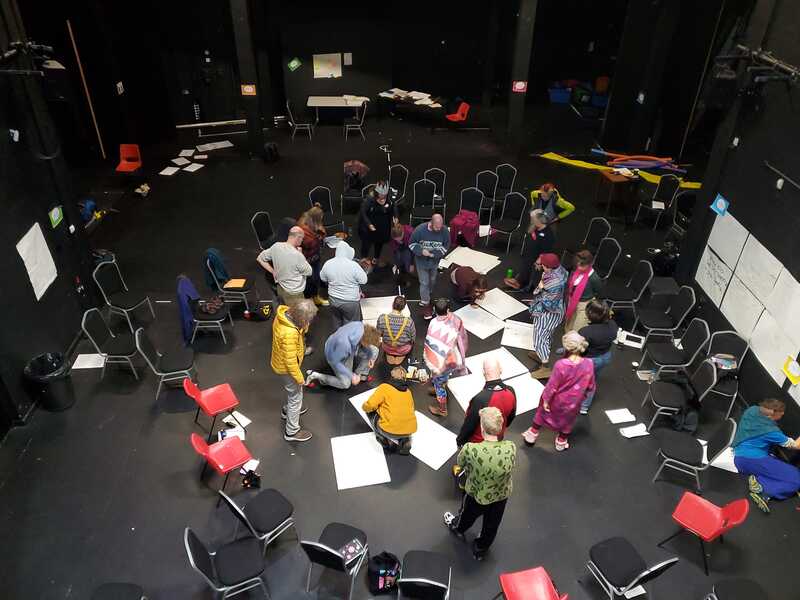
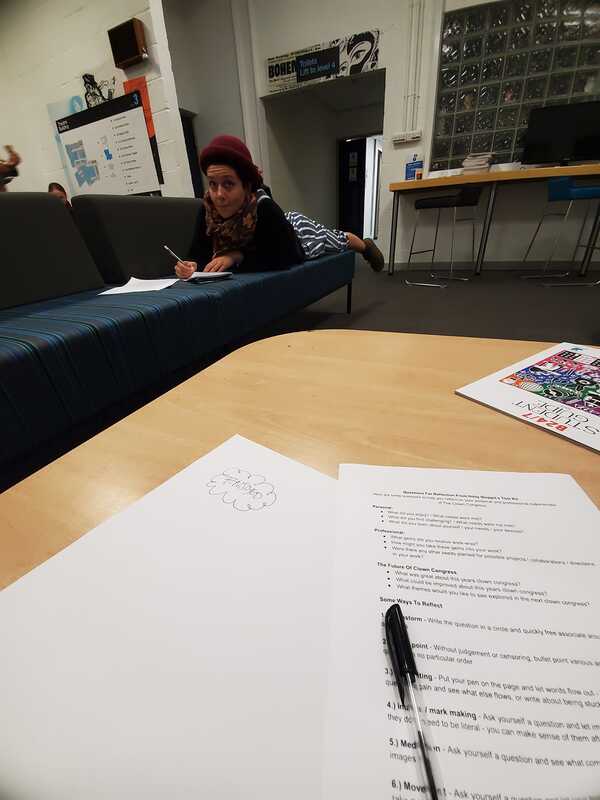
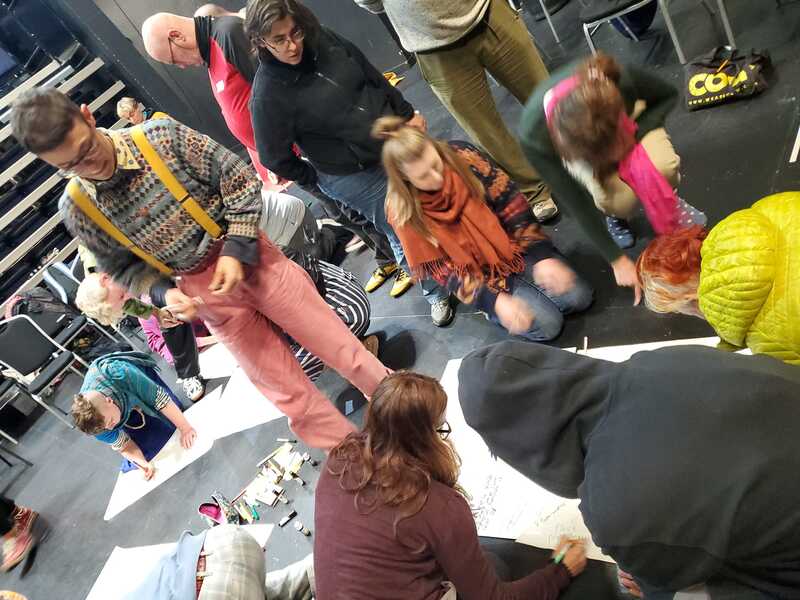
 RSS Feed
RSS Feed
